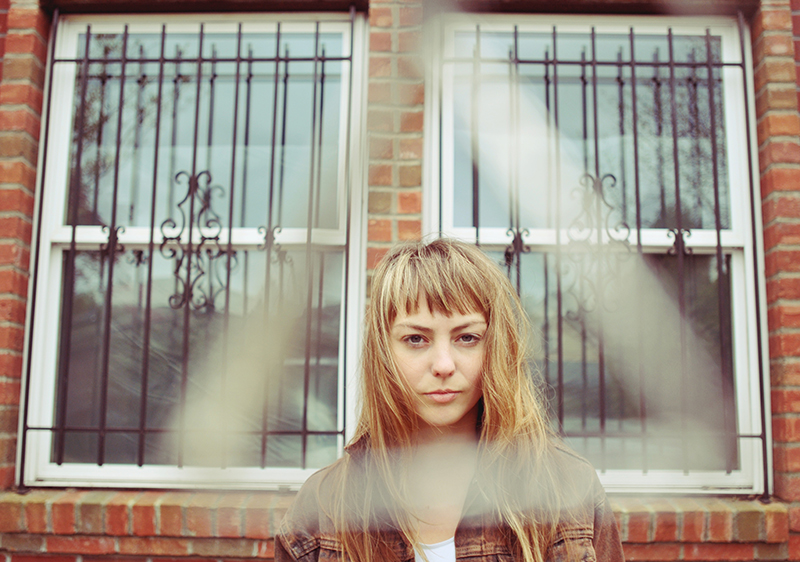Angel Olsen: Total Human Being
Music Interviews
Angel Olsen possesses a prowess and mystique onstage that can make her seem otherworldly, but just as much as she is a performer, she is herself. Olsen stops by Urban Lounge Oct. 13.
Growing up in St. Louis, Olsen had plenty of opportunity to grow into the artist she is now. The music scene at the time was fairly small, mostly male and had almost no folk influence. “I didn’t fear competing against anything,” she says. “I always thought, ‘I’m just going to write my songs and try it out,’ … I would run up onstage with a microphone, just dancing and singing around.” Though she was a young teenager—using message boards to find all-ages venues where her parents would approve of her playing—these experiences gave her the footing necessary to guide her to the next phase of musicianhood. While her peers were packing up and moving out for college, Olsen decided to try Chicago on for size. “When I moved away, I didn’t know how to wash my own laundry or hold a job,” she says. “Having to learn all of this at once in a big city without having friends was a big change for me, coming from a small town where everybody knows everybody and there’s not a lot else going on. I think in that transition, I was inspired to write a lot.”
Her bold leap forward and persistence in singing and writing music paid off—she landed a gig as a touring backup singer with Will Oldham, better known as the gruff, bearded singer-songwriter Bonnie Prince Billy. She recalls scribbling lyrics in the back of the van, learning stanzas of new vocals an hour or two before performing and challenging herself to become a better musician. “It was a great preparation for me mentally to have the insight of being on tour all the time and seeing what that’s like,” Olsen says. “You could be in the most beautiful, exotic place ever, but you still want to play an awesome show, and if a sound guy pisses you off, your night could be ruined—and that totally happens all the time. It doesn’t mean you’re jaded or don’t appreciate where you are; it just means that you want to enjoy life, too, and that’s OK.”
For Olsen, parting ways with Oldham to begin her solo music career wasn’t scary or overthought—in some ways, she knew it was the only option. Before long, she was recording Burn Your Fire For No Witness live in a building, her voice slightly raspy from a cold she developed a few days before. She notes that recording has always been a staple of her process. Even as a young girl, she used a Panasonic tape recorder to figure out what she sounded like. “If you’re trying to make something that’s natural, it makes sense to have the backbone of your record recorded live,” she says. Olsen’s singing certainly lends itself to the resonant, slightly eerie effects of a large, old building. Her voice is cinematic and has enough lonesome twang in it to be the background of a Clint Eastwood film, but it’s not exactly fair to call her a Western musician—or a folk, Americana, singer-songwriter, rock or indie musician, for that matter. Her songs sweep unapologetically from one genre to the next, fast or slow, snarky or downright sorrowful—she’s still just writing her songs as they make sense to her.
Since her last recording, Olsen finds herself in transition again, having recently moved to the small, music-friendly town of Asheville, North Carolina. “There’s room to breathe here,” she says. “Chicago’s such a great town, but when you come back from tour, it’s not a very soft landing.” In between tours, she’s been busy writing piano-based songs and strives to have jam sessions with her band that are unrehearsed and fun. Olsen doesn’t put much emphasis on having a cohesive vision of her next album—her music often comes to her in bits and pieces as she’s on the road. Having adapted to a traveling lifestyle for the most part, she muses with a chuckle about what her songwriting will be like in five or 10 years. “I don’t know if I’m going to have kids or not,” she says. “I don’t know if I’m going to get married or not, but I imagine my songs will be about watching everyone around me have children or some existential shit like that.”
When asked about the pressures and expectations she deals with, Olsen describes it this way: “You have to out-clever yourself with everything you make and do and say, even though you’re a total human being.” Like any 20-something, Olsen wonders with some uncertainty about the future—going mentally from “I’m so important” to “What the fuck am I doing with my life?” Lately, she’s breaking up these thoughts with dog-sitting, drinking double shots of espresso over ice and going to see friends at the record store. She’s not hung up on any crippling, looming fears, though. “It’s good for me to remember that it’s not necessarily something that’s going to last forever and that I should just be psyched that it’s happening,” she says. “It’s a privilege to be onstage.”
